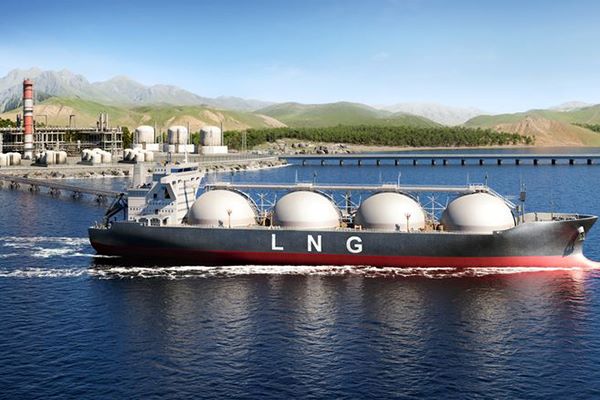ii view: Shell flags gas ambitions and boosts shareholder returns
Laying out improved financial targets and looking to simplify a globally diverse business. We assess prospects for this UK headquartered energy giant.
25th March 2025 11:41
by Keith Bowman from interactive investor

Strategy update
- Increasing shareholder returns to 40-50% of operational cashflows from a previous 30-40%
- Increasing targeted cost savings to a cumulative $5-7 billion by the end of 2028, compared to 2022, up from $2-3 billion by the end of 2025
- Reducing capital expenditure to $20-22 billion per year between 2025 and 2028, down from a previous $22-$25 billion for 2025
Chief executive Wael Sawan said:
‘’We have made significant progress against all of the targets we set out at our Capital Markets Day in 2023. Thanks to the outstanding efforts of our people, we are transforming Shell to become simpler, more resilient and more competitive.
“Today we are raising the bar across our key financial targets, investing where we have competitive strengths and delivering more for our shareholders.’’
- Invest with ii: What is a Managed ISA? | Open a Managed ISA | Transfer an ISA
ii round-up:
Energy giant Shell (LSE:SHEL) today beefed up planned returns to shareholders while flagging its ambition to become the world’s leading integrated gas and Liquefied Natural Gas (LNG) business.
Prioritising share buybacks, shareholder returns are to be raised to between 40% and 50% of operational cashflows from 30-40% previously, with targeted cost savings raised to a cumulative $5-7 billion by the end of 2028 from a prior $2-3 billion by the end of 2025.
Shares in the FTSE 100 giant rose 2% in UK trading having come into this latest news up 10% year-to-date. That’s similar to rivals BP (LSE:BP.) and TotalEnergies SE (EURONEXT:TTE), but less than the 27% gain for the price of natural gas. The price of Brent crude is down 3% in 2025. The FTSE 100 index is up 5%.
Shell's various divisions include integrated gas, chemicals and products and renewables and energy solutions. Shell’s planned increase in share buybacks over the business cycle sits alongside its maintained goal to increase the dividend by 4% per annum.
The energy giant also plans to reduce capital expenditure on operations to between $20 billion and $22 billion per year between 2025 and 2028, down from a previous target of up to $25 billion in 2025.
Other ambitions now include driving higher returns for the Renewables and Energy Solutions businesses where it expects to have up to 10% of capital employed by 2030. It's also unlocking value for the Chemicals business by exploring partnership opportunities in the US and potentially making selective European closures.
Management aims to expand upstream production by 1% per year to 2030, maintaining a target of 1.4 million barrels per day of liquids production out to 2030, and which comes with an increasingly lower carbon intensity given the focus on LNG as opposed to oil.
Broker Morgan Stanley reiterated its ‘overweight’ stance following the news, highlighting Shell as a ‘top pick’. First-quarter results are scheduled for 2 May.
ii view:
Founded in 1907, Shell today employs around 96,000 people across more than 70 countries. The FTSE 100 company serves approximately one million commercial and industrial customers, as well as around 33 million people daily at its Shell-branded petrol stations. Management focuses include improving operational and financial performance, simplifying the business, as well as becoming a net-zero emissions energy business by 2050.
For investors, the tough economic backdrop, particularly in China which remains the world's biggest oil importer, continues to offer uncertainty regarding future energy demand. The USA’s warmer relationship with Russia could potentially see Russian energy back on global markets, increasing supply and lowering prices. Windfall taxes introduced in reaction to higher energy prices and the war in Ukraine persist, while tackling climate change remains a pressing need for both the industry and governments alike.
- Five mining stocks to watch in 2025
- Important last-minute checklist for tax year end 2025
- Insider: a FTSE 100 stock backed to rebound after sell-off
On the upside, changes in strategy and including exploration only in regions where hydrocarbons have already been found, is allowing capital expenditure to reduce and shareholder returns to increase. Shell’s diversity of operations across oil, gas, chemicals, and retailing regularly allows one area of strength to counter another of weakness. Cost saving targets have been increased, while group net debt of $38.8 billion at the end of 2024 was down from $43.5 billion a year earlier.
On balance, and despite ongoing risks, an increased focus on shareholder returns including a forecast dividend yield of around 4%, plus a consensus analyst estimate of fair value above £33 per share, all provide grounds for continuing optimism.
Positives:
- Diversity of operations
- Focus on shareholder returns
Negatives:
- Uncertain economic outlook
- The weather can raise operational challenges
The average rating of stock market analysts:
Strong buy
These articles are provided for information purposes only. Occasionally, an opinion about whether to buy or sell a specific investment may be provided by third parties. The content is not intended to be a personal recommendation to buy or sell any financial instrument or product, or to adopt any investment strategy as it is not provided based on an assessment of your investing knowledge and experience, your financial situation or your investment objectives. The value of your investments, and the income derived from them, may go down as well as up. You may not get back all the money that you invest. The investments referred to in this article may not be suitable for all investors, and if in doubt, an investor should seek advice from a qualified investment adviser.
Full performance can be found on the company or index summary page on the interactive investor website. Simply click on the company's or index name highlighted in the article.